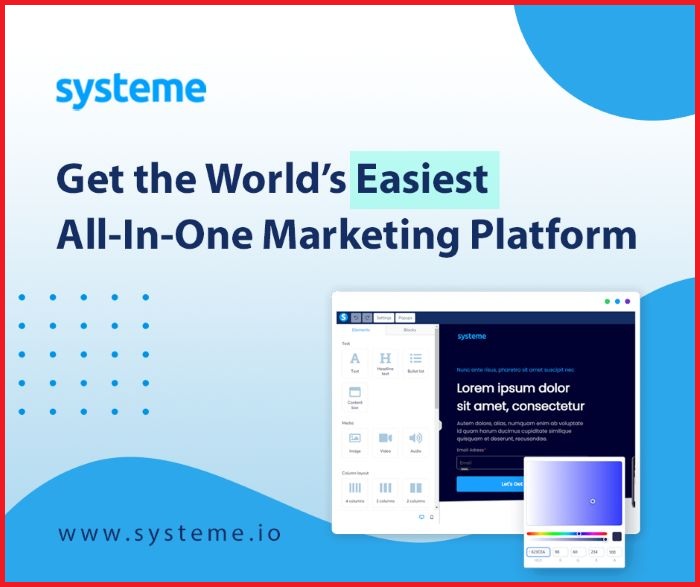Thinking about digital marketing can sometimes feel overwhelming, with so many strategies and tools to consider. One effective method to drive traffic and increase sales is pay-per-click (PPC) advertising, but doing it right can be tricky. PPC marketing consultants can be the game-changer your business needs to maximize the success of your PPC campaigns.

PPC consultants bring expertise and experience that can help you design campaigns tailored specifically for your audience. Their skills extend beyond just creating ads; they assess your current metrics and guide your marketing efforts to improve returns. Whether you are targeting Google Ads, Facebook, or other platforms, these experts understand the nuances of how to get the most from each advertising dollar spent.
As you engage with these professionals, you’ll find that they provide strategies that align with your business goals. From developing targeted ads to improving conversion rates, their objective is to enhance the effectiveness of your digital marketing efforts. Gain a competitive edge by integrating advanced techniques that PPC consultants offer to navigate the complex landscape of online advertising.
Key Takeaways
- PPC consultants boost campaign success.
- Improve returns with targeted strategies.
- Enhance effectiveness through digital expertise.
Understanding PPC Marketing
Pay-Per-Click (PPC) marketing is a crucial part of digital advertising, enabling businesses to pay for high visibility in search engine results. By focusing on specific key components, you can create successful campaigns that drive traffic and increase conversions.
The Role of PPC in Digital Marketing
PPC is a vital tool in digital marketing because it allows for targeted and measurable results. Unlike traditional advertising, you only pay when someone clicks on your ad. This method maximizes your return on investment, ensuring funds are spent effectively.
PPC campaigns help increase brand visibility quickly. By placing your ads at the top of search results, potential customers are more likely to notice your business. This fast visibility is essential for competitive markets. PPC is also adaptable, letting you adjust bids, ad copy, and targeting to match changing strategies and goals.
Key Components of a PPC Campaign
To create an effective PPC campaign, you need to focus on several core elements. Keyword selection is crucial, as choosing the right words ensures your ads reach the correct audience. Quality keywords improve ad relevance, leading to higher click-through rates.
Ad copy should be compelling and clear. It needs a strong call-to-action to prompt clicks and conversions. Your ad should align with what users are searching for and deliver on its promises.
Budget management is important too. Setting the right bid and monitoring expenditure helps optimize your ad spend, increasing the chances of achieving your advertising goals. Proper budget allocation ensures that your campaigns remain cost-effective while maximizing reach.
Hiring PPC Consultants
When considering hiring PPC consultants, focus on their experience and specific skills. Effective PPC experts offer insights that can enhance your advertising campaigns. They identify improvement areas and bring fresh perspectives to your strategies.
Qualities of Effective PPC Marketing Consultants
Look for consultants with a strong track record in PPC management. Experience in your industry is an added benefit. A consultant should understand diverse platforms like Google Ads and Bing Ads. They need excellent analytical abilities to evaluate and optimize campaigns effectively.
Strong communication skills are vital for collaboration. The consultant must explain complex data in simple terms, helping your team make informed decisions. It’s also essential for them to stay updated with the latest trends in PPC consulting services to bring innovative ideas to your campaigns.
The Process of PPC Consulting
The consulting process begins with an evaluation of current PPC strategies. A consultant will assess your business needs and goals. They focus on gathering data about your audience and competitors. This step helps in designing tailored strategies.
Next, PPC experts implement these strategies, adjusting elements like keywords and bidding tactics. Regular monitoring tracks performance and progress. An effective consultant will provide detailed reports, explaining results and suggesting adjustments. Collaboration with your in-house team ensures seamless execution, enhancing campaign effectiveness over time.
Developing PPC Strategies
Creating an effective PPC strategy involves understanding your target audience, optimizing for conversion, and adapting to market trends. Key elements include personalized ad strategies and proficient bid management to maximize ROI.
Crafting Tailored PPC Advertising Strategies
To succeed in PPC advertising, you need to craft strategies specifically tailored to your target audience. Begin by conducting thorough market research to identify the preferences and buying behaviors of your audience. This involves analyzing search trends and utilizing tools to understand what potential customers are searching for.
Once you have this data, design ads that resonate with your audience. Use engaging copy and visuals that clearly highlight your unique value proposition. Always align your messages with the pain points or desires of your audience. This connection improves the chances of higher click-through rates.
Another essential component is aligning your ads with current market trends. Stay informed about shifts in consumer behavior and adapt your campaigns accordingly. The goal is to stay relevant and appealing while driving successful conversions.
Fundamentals of Effective Bid Management
Effective bid management is crucial for maximizing your PPC campaign’s ROI. Start by setting clear budget limits based on your marketing goals. Allocate resources to campaigns that show strong potential for conversion and adjust bids according to performance metrics.
Use automated bidding strategies to optimize your efforts. Tools and software can help adjust bids in real time, taking into account factors like competition and changing market conditions. This ensures you’re paying the right price for each interaction.
Monitor your campaigns regularly, reviewing performance data to identify which keywords and ad placements are yielding the best results. Make data-driven adjustments to your bids to enhance efficiency. Proper bid management allows you to balance cost-per-click with the desired conversion rate, ultimately driving more value from your PPC investments.
Optimizing PPC Campaigns
To improve the performance of PPC campaigns, focus on thorough keyword research, crafting compelling ad copy, and using A/B testing for ongoing improvements. Each of these areas brings a unique advantage in maximizing ad effectiveness and engagement.
Importance of Comprehensive Keyword Research
Comprehensive keyword research is the backbone of any effective PPC campaign. By understanding what terms your audience searches for, you can tailor your ads for maximum visibility and relevance. Use tools like Google Keyword Planner to find keywords with high search volume and low competition.
Long-tail keywords can be particularly useful. They are less competitive and more targeted, attracting users who are closer to making a purchase decision. Continuously analyze and update your keyword lists to align with shifting trends. This approach helps maintain the relevance and effectiveness of your campaigns, ensuring you capture valuable leads.
Creating High-Quality Ad Copy
High-quality ad copy makes your ads stand out. Start by understanding your audience’s needs and pain points. Use this insight to create persuasive and concise messages that speak directly to them. Highlight unique selling points clearly to differentiate your product or service from competitors.
Include a clear call-to-action (CTA) to guide your audience on what steps to take next. Keep ad copy engaging and relevant to the keywords you’ve chosen. Regularly reviewing and refining your ad copy helps maintain high ad quality, which can positively influence your campaign’s success.
A/B Testing and Continuous Improvement
A/B testing is crucial for refining your PPC campaigns. By testing different elements—such as headlines, CTAs, or visuals—you can identify what resonates best with your audience. Set up tests with clear objectives to gather useful data.
Use data from A/B tests to make informed changes and improve campaigns over time. Small tweaks can have a significant impact. Continuous analysis and optimization of your PPC campaigns will lead to better results, higher click-through rates, and ultimately, improved conversion rates. Making data-driven decisions ensures that your strategy evolves with your audience’s preferences and market changes.
Metrics and Performance Analysis
Metrics play a crucial role in evaluating the success of your PPC campaigns. By focusing on key performance indicators, you can optimize ad spend and improve ROI.
Identifying and Tracking the Right KPIs
To effectively evaluate PPC campaigns, start by determining which Key Performance Indicators (KPIs) are most important. Typical KPIs include Impressions, Clicks, Click-Through Rate (CTR), Cost Per Click (CPC), and Conversion Rate. Each KPI provides insights into different aspects of your campaign.
Tracking these KPIs regularly helps you measure performance and make informed adjustments. If your CPC is high, it may point to the need for better keywords or ads. Monitoring your CTR allows you to see if your ad content is engaging viewers. For better campaign visibility, consider understanding and improving Impression Share, which compares your ad exposure to competitors.
Analyzing PPC Audit Results
Once your KPIs are set, conducting a PPC audit is critical. This process involves reviewing your account’s structure and performance data. A comprehensive audit looks at Account Structure, Ad Relevance, and Budget Allocation.
During an audit, assess whether your campaigns are aligned with your marketing goals. Check your Return on Investment (ROI) and Return on Ad Spend (ROAS) to gauge profitability. If your campaigns show low ROAS, adjust your strategy to increase efficiency. Use a data-driven approach to make necessary changes that enhance your ad performance.
Integrating with Other Marketing Channels
Connecting PPC with other marketing channels can improve your reach and effectiveness. By merging insights from SEO, content, and social media, you can create a well-rounded approach that enhances your marketing efforts.
The Relationship Between PPC and SEO
PPC and SEO are powerful when used together. Integrating these channels can lead to better visibility on search engines. While PPC ads generate immediate traffic, SEO helps build long-term organic reach.
You can analyze PPC data to identify keywords with high conversion rates and use this information to improve your SEO strategy. This synergy allows your landing pages to attract visitors through both paid and organic search results, creating a comprehensive presence online. Synchronize your campaigns to align keywords, ensuring consistent messaging across PPC and SEO channels.
Synergizing PPC with Content and Social Media Marketing
Combining PPC with content and social media marketing can boost engagement and conversions. When you craft compelling content, use PPC to drive targeted traffic to that content, increasing its visibility and impact.
Social advertising benefits from PPC by reaching specific demographics, enhancing your content’s reach. Platforms like Facebook and Instagram allow you to use paid social ads to promote your best-performing content, ensuring it reaches a broader audience. By aligning your PPC campaigns with social media efforts, you encourage more sharing and interaction, leading to stronger brand awareness and loyalty. This integration also helps to refine targeting options based on social media insights, making your PPC campaigns more effective.
Leveraging Advertising Platforms
When you want to boost your PPC marketing strategies, selecting the right platforms and tailoring your campaigns is key. Each platform has its own unique features and audiences, which you must understand to optimize your ad performance.
Choosing the Right PPC Platforms
To achieve the best outcomes, you need to select platforms that align with your goals. Google Ads is highly popular for its extensive reach and robust analytics. It works well for both search and display advertising.
Microsoft’s Bing Ads is another valuable option, especially for capturing a slightly different audience than Google.
Facebook Ads provides excellent opportunities for targeting based on user demographics and interests. Its platform thrives with image and video ads, effectively engaging a diverse user base.
Amazon Ads is ideal if you cater to retail needs, as it targets ready-to-buy consumers directly. Exploring these options allows you to identify the best fits based on your business objectives and audience characteristics.
Customizing Campaigns for Different Advertising Networks
Each network requires unique campaign customizations. For Google Ads, focusing on keyword selection and ad quality improves visibility and click-through rates. On Facebook Ads, creative use of visuals and audience segmentation is crucial for user engagement. Tailor your content to cater to the audience characteristics and preferences specific to the platform.
With Display Ads, the emphasis should be on eye-catching designs and compelling calls to action. For video ads, platforms like YouTube offer the chance to deliver dynamic content within a few seconds. Aligning your campaign strategies with the strengths and requirements of each platform can lead to improved performance and higher return on investment.
Advanced PPC Techniques
Advanced PPC techniques can significantly improve your marketing efforts. Remarketing enhances customer retention, while effective PPC marketing can boost ecommerce success.
Implementing Remarketing Strategies for Higher Retention Rate
Remarketing is crucial for retaining customers. It involves targeting users who have interacted with your brand but did not complete a purchase. Using remarketing lists, you can create tailored ads that reconnect with these users. This increases the chances of converting them into paying customers.
Improving conversion rates with remarketing requires personalized ads. These ads should focus on previous interactions and interests. Highlighting exclusive offers or reminders of items left in carts can encourage users to return. Tracking user behavior and continuously optimizing ads using data is also essential.
Another important aspect is using multiple channels for remarketing. Consider platforms like Google and social media to consistently engage potential customers. Adapting strategies based on the platform’s strengths ensures better results.
Enhancing Ecommerce Success with PPC Marketing
For ecommerce businesses, PPC marketing drives traffic and increases sales. To maximize success, focus on Conversion Rate Optimization (CRO) to ensure visitors turn into buyers. This involves testing and refining ad copy, images, and targeting to match user preferences.
Landing Page Optimization is another key element. Create landing pages that are user-friendly and relevant to ads. This can include clear calls to action, simple navigation, and fast load times. A well-optimized landing page improves user experience and boosts conversion rates.
In addition, utilize advanced PPC techniques like audience targeting and retargeting. By understanding customer segments and adapting marketing efforts, you can increase engagement and sales. Analyzing performance and making data-driven adjustments are vital for sustained growth.
Budgeting and Financial Management for PPC
Understanding how to allocate your advertising budget effectively can boost your PPC campaign results. You should focus on creating cost-effective strategies that maximize targeted traffic without overspending.
Allocating Budget for Maximum Impact
When allocating your budget, consider using a structured plan to distribute funds effectively throughout your campaigns. Begin by identifying your marketing goals and how much you’re willing to spend to achieve them.
Consider the recommended monthly budget that suits your business type. Local businesses might start with a lower budget, such as $1,000 or more, while larger enterprises might require $10,000 or more for broader reach. Ensure your budget reflects your desired traffic and conversion goals.
Prioritize high-performing keywords that align with your business objectives. This approach helps in channeling funds to ads that generate the most clicks and conversions. You might also look at seasonal trends to adjust your spending for maximum impact.
Ensuring Cost-Effective PPC Campaigns
To maintain cost-effectiveness, close monitoring of your campaigns is crucial. You should regularly assess your bid management strategies to ensure optimal spending on clicks.
Use tools to track and analyze the performance of your ads. These tools can identify which keywords and ads deliver the best return on investment. Reduce spending on underperforming ads and redirect those funds to more successful elements of your campaign.
Another critical aspect is setting a target Cost Per Acquisition (CPA). This ensures that each customer gained through PPC remains profitable. Continually refining your approach based on performance data will help in adapting your strategies to achieve better results within your budget constraints.
Maintaining Client Relationships and Reporting
Success in PPC consulting relies heavily on building strong client relationships and effective reporting. Clear communication and transparency ensure clients feel involved and informed about the progress and results of their campaigns.
Effective Communication with Stakeholders
To maintain good client relationships, focus on regular and open communication. Share updates frequently to keep clients informed about their PPC campaigns. Discuss both achievements and challenges. This helps in making informed business decisions together.
It’s important to align communication strategies with the client’s expectations. By doing so, you create trust and a sense of partnership. Use a mix of tools like emails, meetings, and instant messaging to cater to different preferences. Consistency in communication also plays a key role in fostering long-term relationships. Be proactive in addressing questions or concerns, and make sure you offer solutions to potential problems.
Reporting and Transparency in PPC Consulting
Clear and detailed reporting is crucial for client satisfaction. Provide reports that highlight key metrics and performance indicators. These should be easy to understand yet comprehensive enough to support decision-making. Reporting tools can aid in presenting complex data simply and effectively.
Key elements to include in your reports are campaign performance, budget spending, and areas needing improvement. Consistently sharing this information not only helps build trust but also allows clients to see the value of the services provided. Transparency in the process encourages a deeper collaboration and can significantly improve the relationship with the client. By being open about results and strategies, you’re more likely to achieve shared goals.
Frequently Asked Questions
PPC consultants play important roles in managing and optimizing advertising campaigns. Hiring one involves evaluating their skills and experience. Understanding fee structures and expected results is key. Here are some common questions.
What roles and responsibilities do PPC consultants have in campaigns?
PPC consultants focus on managing and optimizing your pay-per-click campaigns. They research keywords, create ads, and monitor performance. You can rely on them to adjust bid strategies and ensure effective spending. They also track metrics like clicks, conversions, and costs to improve campaign outcomes.
What qualifications should one look for when hiring a PPC marketing specialist?
When hiring a PPC specialist, look for certifications like Google Ads or Bing Ads, as well as experience with various PPC tools. They should understand your industry, and have a track record of successful campaigns. Analytical skills and effective communication are essential to ensure they can translate data into actionable strategies.
How are fees typically structured for PPC marketing services?
PPC fees can vary based on the level of service you need. Some consultants charge a monthly retainer, while others opt for a performance-based model, taking a percentage of ad spend. It is also common to encounter hourly rates. Clarify the fee structures to align with your budget and goals.
What measurable impacts should one expect from a successful PPC campaign?
A successful PPC campaign should increase website traffic and conversions. You should see improvements in metrics like click-through rates, conversion rates, and return on ad spend. Effective campaigns boost brand visibility and generate quality leads, contributing to your business growth.
In what ways can PPC agencies drive revenue growth for businesses?
PPC agencies drive revenue growth by optimizing your ad spend and targeting the right audiences. They improve ad copy, landing pages, and bidding strategies to increase conversions. By managing campaigns effectively, they help lower acquisition costs and improve your return on investment, leading to higher revenues.
How does the experience level of a PPC freelancer affect their performance in campaign management?
A more experienced PPC freelancer tends to have a better grasp of strategy and troubleshooting. They are often more efficient in optimizing campaigns and adapting to changes.
Experience allows them to predict challenges and implement proven tactics, increasing your campaign’s success rate. However, skilled beginners can also offer fresh perspectives and innovative ideas.





